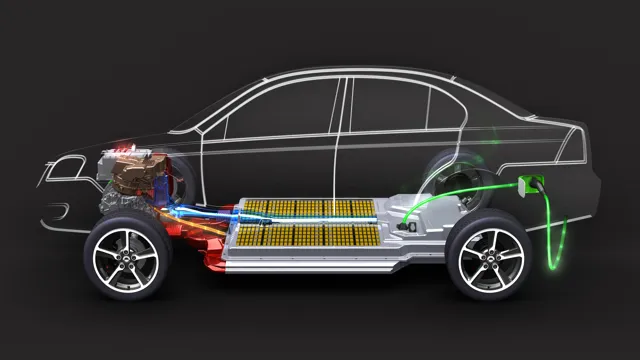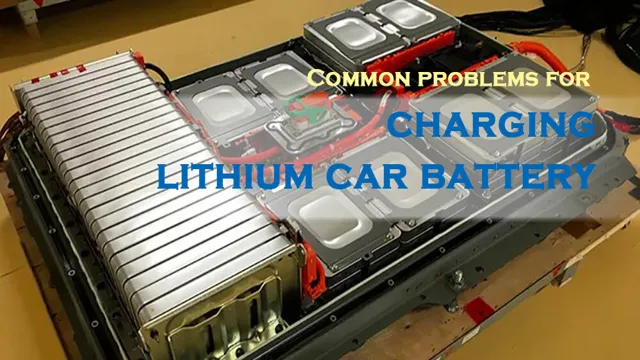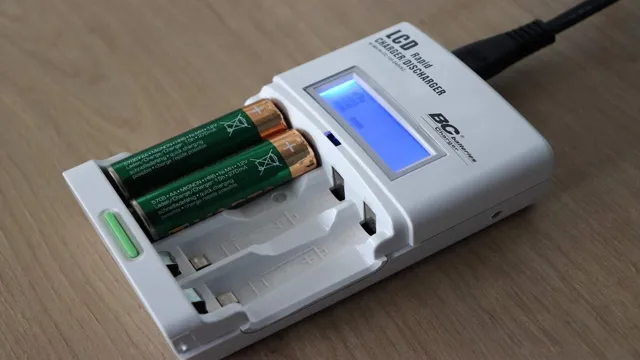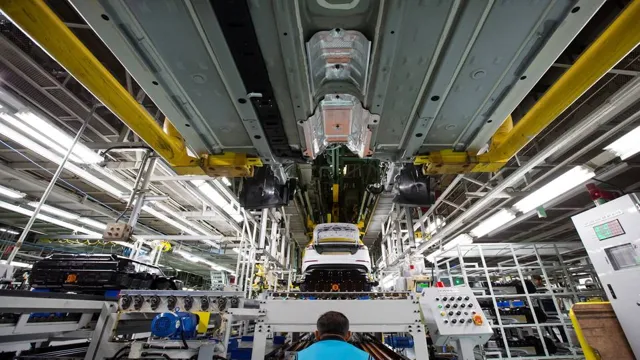Do Electric Car Batteries Need a Charge When Sitting? Understanding the Myth of Losing Charge When Not in Use
Do you own an electric vehicle and worry about the battery loss when not using it for a while? Many people ask if EV batteries lose their charge when the car is not in use, and the answer is yes, but not as quickly as you may think. Like any other type of battery, EV batteries do lose charge over time, even when not in use. However, the discharge rate of EV batteries is much lower than that of traditional lead-acid batteries, which are commonly found in petrol-powered vehicles.
In this blog post, we will explore how quickly EV batteries lose their charge, why it happens, and what you can do to prevent it. Let’s jump in and explore this topic in more detail!
Introduction
If you’re wondering whether electric car batteries lose charge when not in use, the simple answer is yes. Just like any other type of battery, electric car batteries gradually lose charge over time. However, the rate of discharge depends on several factors, including the battery’s chemistry, temperature, and age, among others.
Electric vehicle manufacturers recommend keeping the battery charged between 20% and 80% to extend its lifespan. Nonetheless, leaving an electric car with a fully charged battery unused for weeks or even months will result in some loss of charge. The good news is that this discharge rate is much slower than that of conventional batteries used in laptops or smartphones.
Furthermore, modern electric cars have advanced Battery Management Systems (BMS), which regulate the battery charge level and help keep it healthy for longer periods of time.
Explaining EV battery technology and its properties.
Electric vehicles (EVs) are becoming increasingly popular, especially due to their eco-friendliness and cost-effectiveness. However, the technology that powers them is still a mystery to many people. The EV battery is critical to the functioning of the car, and understanding its technology is essential.
An EV battery is made up of a combination of cells, and each cell consists of a cathode, an anode, and an electrolyte. The cathode and anode are separated by a thin membrane that allows the movement of electrons. These batteries are rechargeable and store electricity, providing power to the motor when required.
In this post, we will delve into the technical details of EV batteries and their properties.

EV Battery Drainage and Storage
Yes, electric car batteries can lose charge when they’re not in use, which is known as battery drainage. This can be caused by a few different factors such as the age and quality of the battery, the temperature at which it’s stored, and even the electronic systems running in the background of the vehicle. While it’s normal for all batteries to self-discharge over time, the drain on electric car batteries can be more significant due to their larger size and power capacity.
It’s important to note that not all electric vehicles will have equal rates of battery drainage, and it can vary depending on the make and model. However, there are steps you can take to reduce battery drainage such as keeping your car in a cool, dry place and using a power management system to monitor and control the charge levels. Overall, it’s important to take proper care of your electric vehicle’s battery to ensure its longevity and efficiency.
Examining the battery storage and drainage mechanisms of EVs in regards to usage.
As the popularity of electric vehicles (EVs) continues to rise, it’s important to examine how these vehicles manage battery storage and drainage. Unlike traditional gasoline-powered cars that have a simple fuel tank, EVs rely on a complex system of batteries to power their engines. These batteries are often large and heavy, and they can take hours to recharge.
However, they also have the advantage of being able to store energy that is generated from regenerative braking or charging while the car is parked. The key to maximizing the range of an EV is to efficiently manage the battery storage and drainage mechanisms. This involves monitoring the charge level of the batteries and adjusting driving habits to minimize energy usage.
In addition, advanced battery management systems can help prevent excessive drainage by shutting down power-hungry features when the battery level is low. By understanding how EV batteries work and taking steps to manage their usage, drivers can enjoy the benefits of electric vehicles while minimizing range anxiety.
Effects of Long-Term Inactivity
If you haven’t driven your electric car in a while, you may be wondering if the battery has lost charge. The answer is yes, electric car batteries do lose charge when not in use for long periods of time. In fact, inactivity can be harmful to the health of the battery, causing it to degrade faster over time.
This is because the battery’s chemical processes slow down and its internal resistance increases, leading to a decrease in overall capacity. To maintain the health of your electric car battery, it’s important to keep it charged and avoid leaving it idle for extended periods. Some electric cars also have a feature that automatically maintains the battery’s charge level, ensuring that it stays healthy even when not in use.
So, if you’re planning a long break from driving your electric car, it’s a good idea to plug it in and keep it charged to prevent any degradation of the battery’s capacity.
Determining the impact of EV inactivity on battery functionality.
One issue that electric vehicle owners may face is the impact of long-term inactivity on their battery functionality. When EVs are not being used or charged regularly, the batteries may start to degrade, resulting in reduced range and performance. The main culprit behind this degradation is the battery’s chemistry, which undergoes changes even when the vehicle is not in use.
These changes can cause the battery to lose its ability to hold a charge over time, and may also result in internal damage to the cells. However, there are steps that EV owners can take to mitigate the effects of inactivity on their batteries. This includes keeping the vehicle plugged in and charging to a certain level, avoiding extreme temperatures, and periodically driving the car to keep the battery active.
It is important to keep in mind that even with these precautions, the battery may still degrade over time, and eventually need to be replaced. As such, it is crucial for EV owners to be aware of the impact of long-term inactivity on their batteries, and take steps to minimize its effects to ensure their vehicle’s longevity and optimal performance.
Arguing for and against the accusation of EV battery drainage during inactivity.
EV battery drainage during inactivity can be a hot topic among people who own electric vehicles. Some drivers claim that their batteries drain quickly, even when the vehicle is not in use. On the other hand, other drivers say that they have had no such issues.
So, what’s the truth behind these claims? The effects of long-term inactivity can indeed cause some battery drainage. However, the amount of drainage varies, depending on various factors, including the age and capacity of the batteries, ambient temperature, and the duration of inactivity. To understand this better, think of a phone battery.
If you go out of town for a week, and don’t use your phone, the battery will still drain a bit, but not significantly. However, if you leave your phone behind for months, the battery will likely drain more. The same principle applies to EV batteries.
If not used for some time, they undergo a natural self-discharge process, where they lose charge gradually. Also, the ambient temperature has a profound impact on this process. In colder climates, the batteries tend to lose their charge more slowly, while in hotter climates, the opposite is likely to occur.
All said, there’s no denying that inactivity does have an impact on EV batteries. But this impact isn’t as significant as some drivers claim it to be. With proper care and maintenance, EV battery drainage can be kept to a minimum, and the batteries can retain their charge for more extended periods.
Some of the ways to prevent batteries from losing their charge include regular charging, keeping the battery in an optimal temperature range, and if possible, disconnecting it from the vehicle when not in use. By taking these measures, you can ensure that your electric vehicle’s battery remains healthy and lasts for years to come.
Ways to Maintain Your EV Battery
Yes, electric car batteries can lose charge when not in use. The best way to maintain the battery and prevent any energy drain is to keep it plugged in and fully charged. If you are planning to leave your EV unused for a long time, it is important to charge the battery to around 50% and store it in a cool and dry place.
Additionally, it is advisable to drive your electric car at least once a month to keep the battery active and prevent it from discharging completely. Regular maintenance of your EV battery, such as cleaning the connections and keeping it cool in hot weather, also helps to extend the life of the battery. It is important to note that while EV batteries do lose a small amount of charge over time, it is nothing compared to the energy loss experienced by traditional car batteries during the same period.
Listing possible ways to avoid EV battery drainage during inactivity through applicable maintenance.
Maintaining your EV battery can help prevent drainage during inactivity, ensuring that it’s always ready to go when you need it. One way to maintain your battery is to keep it charged. Even if you’re not planning on using your EV for a while, it’s important to keep it charged at least to 50%.
This helps ensure that the battery stays healthy and doesn’t degrade too quickly. Another way is to keep your EV in a cool, dry place. This helps prevent the battery from overheating, which can cause damage and drain the battery faster.
Additionally, it’s important to keep up with regular maintenance, such as checking tire pressure and brakes, to ensure that your EV is running smoothly and efficiently. By following these simple tips, you can help extend the life of your EV battery and avoid frustrating drainage during periods of inactivity.
Explaining how charging affects storage and battery performance.
As an EV owner, maintaining your battery is crucial to ensure optimum performance and longevity. One important factor to keep in mind is how charging affects storage and battery performance. Overcharging and undercharging are both detrimental to your battery’s health.
Overcharging can lead to overheating and can cause irreparable damage to the battery cells, while undercharging can result in a shortened battery lifespan and reduced range. It’s best to avoid both extremes and aim for regular, controlled charges using a level 2 or 3 charger. Additionally, avoid fast charging too frequently as it can wear out your battery faster.
By following these tips and maintaining a consistent charging routine, you can help prolong the life of your EV battery and enjoy optimal performance for years to come.
Conclusion
In short, the answer is yes! Just like a phone battery or any other rechargeable battery, electric car batteries can lose charge if not in use. But fear not, with proper care and maintenance, you can help ensure your car is always charged up and ready to go. So, in the words of Benjamin Franklin, “An ounce of prevention is worth a pound of cure” – take care of your electric car battery now, and it will take care of you later.
“
Summarizes the blog post findings. Concluding that EV batteries do not lose charge when not in use.
Maintaining your electric vehicle (EV) battery is important for maximizing performance and longevity. Despite common misconceptions, EV batteries do not lose charge when not in use. However, it is still important to take preventative measures to ensure your battery stays healthy.
One way to maintain your EV battery is to avoid charging it to 100%. Instead, aim for a range of 80-90%. This can prevent unnecessary stress on the battery that can lead to degradation over time.
Additionally, keeping your battery at a moderate temperature can also improve its overall lifespan. Avoid exposing it to extreme temperatures, whether hot or cold. Finally, using fast chargers sparingly is important for maintaining your battery’s health.
These chargers can cause increased heat and stress on the battery, leading to a shorter lifespan. By following these simple tips, you can ensure your EV battery stays healthy for many years to come.
FAQs
How long can an electric car battery retain its charge when not in use?
It depends on the make and model of the car, as well as external factors such as temperature and humidity. Generally, modern electric car batteries can retain their charge for a few weeks to a few months.
Should I leave my electric car plugged in when not in use?
It is generally recommended to keep your electric car plugged in when not in use to avoid losing battery charge and ensure optimal battery health. However, it is important to follow manufacturer guidelines for your specific make and model.
Can leaving an electric car unplugged for too long damage the battery?
Yes, leaving an electric car unplugged for an extended period of time can cause the battery to degrade and lose its charging capacity. It is recommended to keep the battery level between 40-80% when not in use to prolong its lifespan.
How can I maintain the battery life of my electric car when not in use?
There are several ways to maintain the battery life of your electric car, including keeping it plugged in, avoiding extreme temperatures, and performing regular battery maintenance. It is also important to follow manufacturer guidelines and consult a professional if you have any concerns about your battery’s health.






